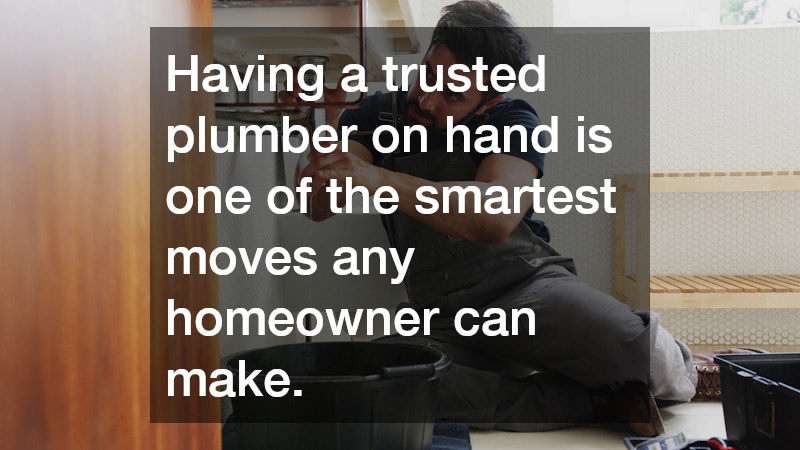A plumber is one of the most essential tradespeople homeowners rely on when something goes wrong with their water systems. From dripping taps to serious pipe bursts, plumbing problems can cause inconvenience, damage and stress if not handled properly.
While some issues may seem minor, they often signal deeper problems that require the expertise of a qualified plumber.
Understanding the most common plumbing issues and how a plumber typically addresses them helps homeowners know when to act and what to expect during a repair.
Leaky Taps and Fixtures
Leaking taps are one of the most frequent plumbing issues reported in Australian homes. Although it may seem harmless, a leaking tap can waste thousands of litres of water each year and increase utility bills.
A plumber will inspect the tap to determine whether the problem is due to a worn-out washer, faulty cartridge or damaged valve seat. Replacing these small components is usually a quick fix, but a plumber will also check for signs of corrosion or water pressure issues that could lead to further damage.
Blocked Drains
Slow-draining sinks and showers are often early signs of a blockage in the plumbing system. These blockages are commonly caused by a build-up of hair, soap scum, food scraps or grease. Over time, they can completely obstruct water flow and cause unpleasant smells or backflow.
A plumber uses tools like plungers, drain snakes or high-pressure water jetters to clear the blockage. For more severe or recurring blockages, a plumber may use a drain camera to inspect the pipes for tree root intrusion or structural damage.
Running Toilets
A toilet that runs continuously can waste a significant amount of water and is usually caused by a faulty flapper valve, float mechanism or fill valve. These parts may become worn or misaligned over time, leading to water constantly flowing into the bowl.
A plumber will inspect the cistern’s internal components and replace any parts that are no longer functioning properly. If the toilet is old or inefficient, the plumber may also recommend upgrading to a newer model that uses less water per flush.
Burst Pipes
Burst pipes can occur due to corrosion, high water pressure or sudden temperature changes. In older Australian homes with ageing pipework, this is a particularly common problem during winter or after a sudden weather shift.
When a pipe bursts, it’s critical to shut off the water supply immediately and contact a plumber. A plumber will locate the damaged section and replace the pipe or fittings. They will also assess whether other parts of the system may be at risk and suggest preventative measures such as pressure regulation or pipe insulation.
Low Water Pressure
Low water pressure can affect showers, taps and appliances, making daily tasks frustrating. It may be caused by sediment build-up in the pipes, corrosion, hidden leaks or issues with the local supply.
A plumber will begin by checking the pressure at different points in the house. They may clean aerators, replace corroded pipes or repair hidden leaks in the system. In some cases, the installation of a pressure-boosting system may be recommended for properties with consistently low mains pressure.
Hot Water System Problems
Issues with hot water systems are another common reason homeowners call a plumber. This includes inconsistent temperatures, low hot water pressure or complete system failure. The cause could be anything from a faulty thermostat to sediment buildup or a leaking tank.
A plumber will inspect the system, test the components and make any necessary repairs. If the system is beyond repair or inefficient, the plumber can guide homeowners in choosing a suitable replacement, including more energy-efficient options such as continuous flow or solar-assisted systems.
Sewer Line Issues
Sewer line problems are less common but more serious. Signs include foul smells, slow drains in multiple areas or gurgling noises from the toilet. These problems are often due to blockages, tree root intrusion or pipe collapse.
A plumber will typically use a CCTV drain camera to inspect the sewer line and identify the issue. Depending on the findings, they may use mechanical tools or hydro jetting to remove obstructions or recommend pipe relining or replacement for extensive damage.
Preventive Maintenance
A reliable plumber doesn’t just fix problems—they also help prevent them. Regular inspections can identify minor issues before they become emergencies. A plumber can check water pressure, inspect joints and seals, service hot water systems and ensure drains are flowing freely.
Homeowners who schedule routine maintenance with a licensed plumber often avoid major repairs and enjoy more efficient water systems year-round.
Having a trusted plumber on hand is one of the smartest moves any homeowner can make. From minor leaks to major repairs, a skilled plumber can diagnose problems quickly, recommend cost-effective solutions and perform repairs that last.
Whether it’s fixing a dripping tap or dealing with a blocked sewer, a plumber brings the tools, experience and knowledge needed to keep your plumbing system in top shape. Addressing issues early not only saves money but also protects your home from long-term damage. With regular maintenance and prompt professional attention, plumbing worries can become a thing of the past.

